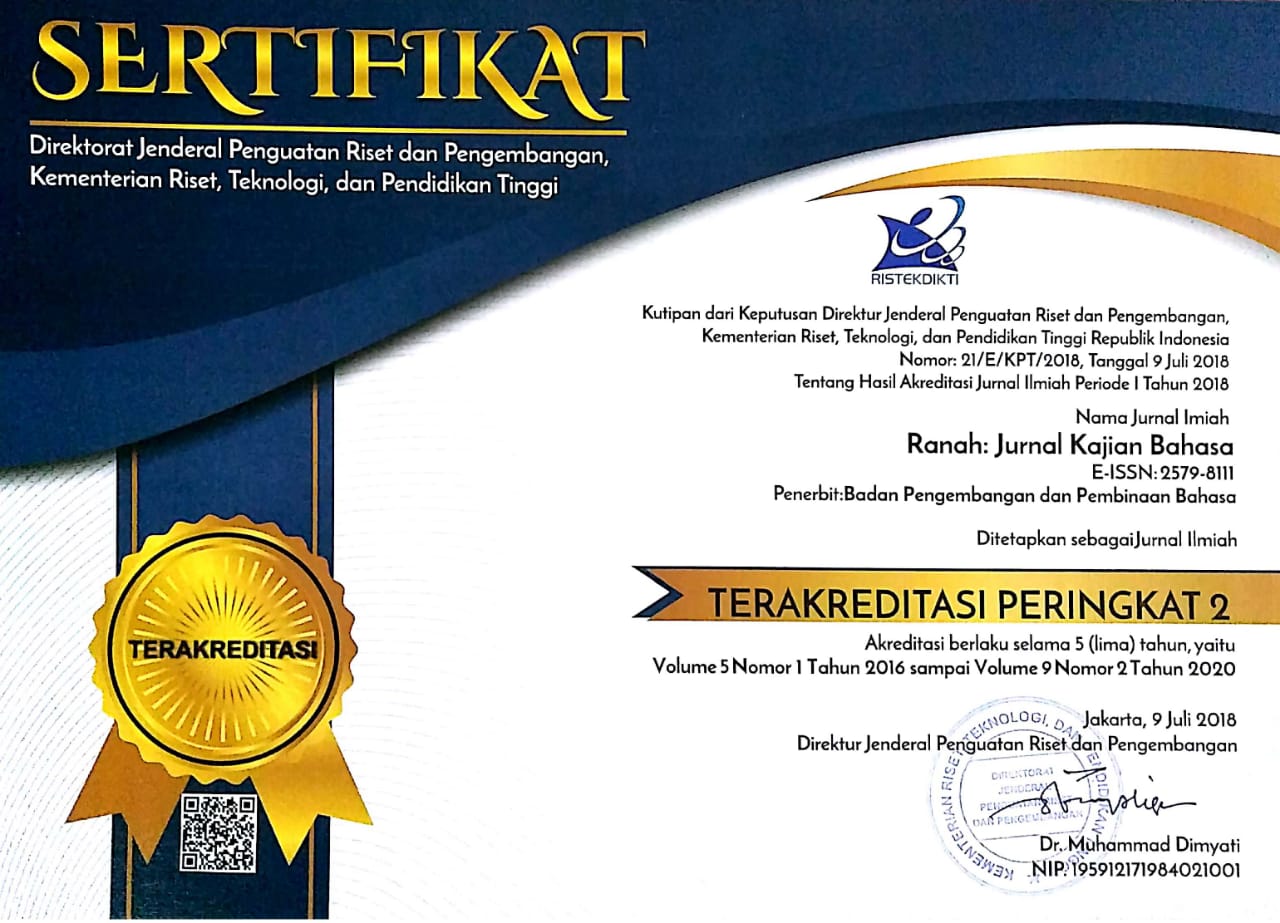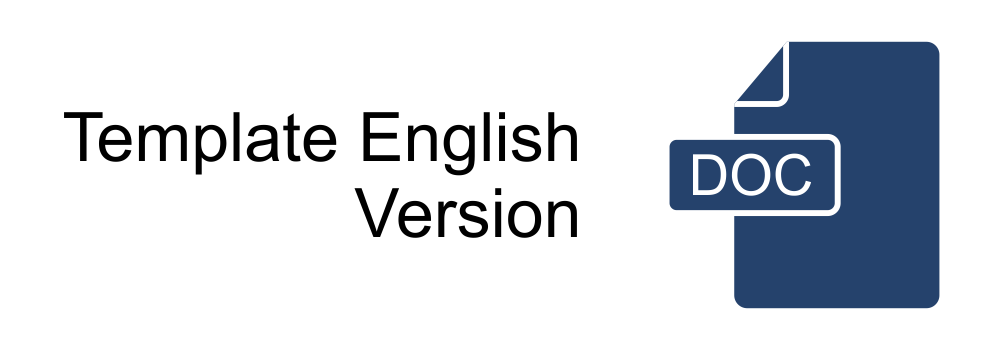The Impact of Persuasive Writing Learning Model on Students’ Entrepreneurial Spirit
Abstract
This study aims to explore the impact of persuasive text writing learning models on the development of students' entrepreneurial spirit. Entrepreneurial spirit is a crucial competency in the era of globalization, encompassing creativity, innovation, and high problem-solving skills. Higher education plays a strategic role in shaping students' entrepreneurial spirit through innovative learning models. This research uses a quantitative method with a quasi-experimental design, involving 32 students from the education study program at Universitas Negeri Makassar. Data were collected through pretests, posttests, questionnaires, and writing tests. The instruments included an entrepreneurial spirit questionnaire and a persuasive text writing test. The results of the study (Hisrich, Peters, & Sepherd, 2017) indicate that the persuasive text writing learning model significantly improves students' writing abilities and entrepreneurial spirit. Students showed an increase in the average score from 57.56 in the pretest to 90.65 in the posttest. Analysis using the T-test showed a significant difference between the initial and final abilities of students in writing entrepreneurial-themed persuasive texts. This research confirms that persuasive text writing skills play a role in the development of entrepreneurial spirit, providing practical recommendations for lecturers and education practitioners in designing effective learning programs. These findings are expected to contribute to the development of entrepreneurship education in higher education and help students face challenges and opportunities in the work and business world.
Abstrak
Penelitian ini bertujuan untuk mengeksplorasi pengaruh model pembelajaran menulis teks persuasi terhadap pengembangan jiwa kewirausahaan mahasiswa. Jiwa kewirausahaan adalah kompetensi penting di era globalisasi, mencakup kreativitas, inovasi, dan keterampilan problem solving yang tinggi. Pendidikan tinggi berperan strategis dalam membentuk jiwa kewirausahaan mahasiswa melalui model pembelajaran yang inovatif. Penelitian ini menggunakan metode kuantitatif dengan desain eksperimen semu, melibatkan 32 mahasiswa program studi pendidikan di Universitas Negeri Makassar. Data dikumpulkan melalui pretest, posttest, kuesioner, dan tes menulis. Instrumen meliputi kuesioner jiwa kewirausahaan dan tes menulis teks persuasi. Hasil penelitian menunjukkan bahwa model pembelajaran menulis teks persuasi meningkatkan kemampuan menulis dan jiwa kewirausahaan mahasiswa secara signifikan. Mahasiswa menunjukkan peningkatan nilai rata-rata dari 57,56 pada pretest menjadi 90,65 pada posttest. Analisis menggunakan uji-T menunjukkan adanya perbedaan signifikan antara kemampuan awal dan akhir mahasiswa dalam menulis teks persuasi bertema kewirausahaan. Penelitian ini mengonfirmasi bahwa keterampilan menulis teks persuasi berperan dalam pengembangan jiwa kewirausahaan, memberikan rekomendasi praktis bagi dosen dan praktisi pendidikan dalam merancang program pembelajaran yang efektif. Temuan ini diharapkan dapat berkontribusi pada pengembangan pendidikan kewirausahaan di perguruan tinggi dan membantu mahasiswa menghadapi tantangan dan peluang di dunia kerja dan bisnis.
Keywords
Full Text:
PDFReferences
Abdurahman, A., & Ratna, E. (2003). Evaluation of Indonesian Language and Literature Learning (Textbook). Padang: FBS UNP.
Aieny, M. P., & Basri, I. (2020). Correlation of News Text Comprehension Reading Skills with News Text Writing Skills for Class VIII Students of SMP Negeri 17 Padang. Journal of Indonesian Language and Literature Education, 9(1), 127–135. https://doi.org/10.26499/mm.v18i2.2383
Aman, A., Raharjo, T. J., Khafid, M., & Supriyanto, T. (2023, June). The Role and Strategy of Higher Education in Forming Superior Human Resources with a Creative Entrepreneurship Spirit in the Era of Society 5.0. In Proceedings of the National Postgraduate Seminar 6(1), 7–12.
Astuti, W., & Santoso, H. B. (2019). The role of communication skills in entrepreneurship. Journal of Entrepreneurship Education, 22(1), 1—10.
Caird, Sally (1991). Testing Enterprising Tendency in Occupational Groups. British Journal of Management, 2(4), 177–186. https://doi.org/10.1111/j.1467-8551.1991.tb00025.x
Cavdar, G., & Doe, S. (2013). Learning through Writing: Teaching Critical Thinking Skill in Writing Assignments. Political Science and Politics, 45(2), 298—306. https://doi.org/10.1017/S1049096511002137
Cole, M. S., Feild, H. S., & Harris, S. G. (2014). Student Learning Motivation and Psychological Hardiness: Interactive Effects on Students’ Reactions to a Management Class. Academy of Management Learning & Education, 3(1), 64–85. https://doi.org/10.5465/amle.2004.12436819
Gage, J. T. (2010). The Shape of Reason: Argumentative writing in college. Pearson Education.
Gagne, Robert M. (1985). The Conditioning of Learning and Theory of Instruction. 4th ed New York: Holt, Rinehart & Winston.
Greenhow, C., Galvin, S. M., Brandon, D. L., & Askari, E. (2020). A decade of research on K–12 teaching and teacher learning with social media: Insights on the state of the field. Teachers College Record, 122(6), 1—72. https://doi.org/10.1177/016146812012200602
Haerazi, H., & Irawan, L. A. (2020). Developing Intercultural Language Learning (ILL) Model to Teach Writing Skills at Indonesian Private Universities. EduLite: Journal of English Education, Literature and Culture, 5(1), 43-54. https://doi.org/10.30659/e.5.1.43-54
Hariyanto, B., Sastrio, T. B., Widayat, E., & Mardiana, N. (2022). The Effect of Problem Based Learning and Discovery Learning Models on Indonesian Learning Outcomes. Jurnal Disastri: Pendidikan Bahasa dan Sastra Indonesia, 4(2), 122–137. https://ejournal.unhasy.ac.id/index.php/disastri/article/view/3104
Hayes, J. R. (1981). A Cognitive Process Theory of Writing. College Composition and Communication, 32(4), 365-387. https://doi.org/10.58680/ccc198115885
Hisrich, R. D., Peters, M. P., & Shepherd, D. A. (2017). Entrepreneurship. McGraw-Hill Education.
Huang, Y., An, L., Wang, J., Chen, Y., Wang, S., & Wang, P. (2021). The role of entrepreneurship policy in college students’ entrepreneurial intention: the intermediary role of entrepreneurial practice and entrepreneurial spirit. Frontiers in Psychology, 12, 585698. https://doi.org/10.3389/fpsyg.2021.585698
Ibda, H. (2019). Pembelajaran bahasa indonesia berwawasan literasi baru di perguruan tinggi dalam menjawab tantangan era revolusi industri 4.0. Jalabahasa, 15(1), 48-64. https://doi.org/10.36567/jalabahasa.v15i1.227
Irawanto, D. W., & Novianti, K. R. (2021). Entrepreneurship education in higher education: optimizing innovative behaviour of z generation. Indonesian Journal of Business and Entrepreneurship (IJBE), 7(1), 11—11. https://doi.org/10.17358/ijbe.7.1.11
Klimova, B.F. (2013). The Importance of Writing. Paripex-Indian Journal of Research, 2(1), 9—11. https://doi.org/10.15373/22501991/JAN2013/4
Kuratko, D. F. (2005). The emergence of entrepreneurship education: Development, trends, and challenges. Entrepreneurship Theory and Practice, 29(5), 577-597. https://doi.org/10.1111/j.1540-6520.2005.00099.x
Li, Y., & Garza, V. (2020). Enhancing creativity and critical thinking in college students through a writing-intensive course. Journal of College Teaching & Learning, 17(2), 55-64.
Lishinski, A., Yadav, A., Good, J., & Enbody, R. (2016). Learning to Program: Gender Differences and Interactive Effects of Students’ Motivation, Goals, and Self-Efficacy on Performance. Proceedings of the 2016 ACM Conference on International Computing Education Research, 211–220. https://doi.org/10.1145/2960310.2960329
McGrath, G. R., & MacMillan, J. (2000). Entrepreneurial Mindset: Strategies for Continuously Creating Opportunity in an Age of Uncertainty. Brighton, MA: Harvard Business School Press Books.
Mulyaningsih, I., Rahmat, W., Maknun, D., & Firdaus, W. (2022). How Competence of Production, Attention, Retention, Motivation, and Innovation Can Improve Students' Scientific Writing Skills. International Journal of Language Education, 6(4), 368-385.
Mursid, R. (2017). Pengembangan model pembelajaran penguatan vocational life skills mahasiswa berwawasan kewirausahaan di bidang teknik mesin. Jurnal Pendidikan Vokasi, 7(1), 110-122. https://doi.org/10.21831/jpv.v7i1.12653
Nisa, K., Ramadhan, S., & Thahar, H. E. (2023). Implementing a Problem-Based Learning Model in Writing Scientific Articles for Undergraduate Students. Journal of Language Teaching and Research, 14(5), 1326–1331. https://doi.org/10.17507/jltr.1405.21
Pawliczak, J. (2015). Creative Writing as a Best Way to Improve Writing Skills of Students. Sino-US English Teaching, 12(5), 347–352. https://doi.org/10.17265/1539-8072/2015.05.004
Pengnate, S. F., & Riggins, F. J. (2020). The Role of Emotion in P2P Microfinance Funding: A Sentiment Analysis Approach. International Journal of Information Management, 54, https://doi.org/10.1016/j.ijinfomgt.2020.102138
Piaget, J. (1977). Cognitive Development. New York: Plenum Press.
Pizzi, S., Caputo, A., Corvino, A., and Venturelli, A. (2020). Management research and the un sustainable development goals (sdgs): a bibliometric investigation and systematic review. Journal of Cleaner Production. https://doi.org/10.1016/j.jclepro.2020.124033
Schumpeter J. (1934): The Theory of Economic Development. An Inquiry into Profits, Capital, Credit, Interest and the Business Cycle. Harvard U
Shah, H., Yusof, F., & Alam, M. Z. (2023). A New Technique to Estimate Percentage Decolorization of Synthetic Dyes on Solid Media by Extracellular Laccase from White-Rot Fungus. Bioremediation Journal, 27(1), 66–74. https://doi.org/10.1080/10889868.2021.1984197
Sofa, F., Baroroh, R. U., Nurinadia, P., Wahidah, N., & Afifah, S. N. (2023). Innovation of Language Receptive Skills Based on Authentic Assessment. Izdihar: Journal of Arabic Language Teaching, Linguistics, and Literature, 6(1), 31-44. https://doi.org/10.22219/jiz.v6i1.24029
Su, C. Y., & Chen, C. H. (2018). Investigating the Effects of Flipped Learning, Student Question Generation, and Instant Response Technologies on Students’ Learning Motivation, Attitudes, and Engagement: A Structural Equation Modeling. Eurasia Journal of Mathematics, Science and Technology Education, 14(6), 2453– 2466. https://doi.org/10.29333/ejmste/89938
Suprayogi, Y., Luckyardi, S., Kurnia, D., & Khairusy, M. A. (2024). Linguistic Technopreneurship in Business Success Digitalization for Small Medium Enterprises in West Java: Implication for Language Education. International Journal of Language Education, 8(2), 343-358. https://doi.org/10.26858/ijole.v8i2.64117
Suryaman, Maman dkk. 2022. Capaian Pembelajaran dan Standar Nasional Pendidikan Bahasa Indonesia. Surakarta: Yuma Pustaka.
Toulmin, S., 1958, The uses of argument, Cambridge: Cambridge University Press.
Veleva, V. (2020). The Role of Entrepreneurs in Advancing Sustainable Lifestyles: Challenges, Impacts, and Future Opportunities. J. Clean. Prod. 283:124658. https://doi.org/10.1016/j.jclepro.2020.124658
Vygotsky, L. S. (1978). Mind in society: The development of higher psychological processes. Cambridge: Harvard University Press.
Wang, W., He, L., Wu, Y. J., & Goh, M. (2021). Signaling Persuasion in Crowdfunding Entrepreneurial Narratives: the Subjectivity vs Objectivity Debate. Computers in Human Behavior, 114, 106576. https://doi.org/10.1016/j.chb.2020.106576
Yundayani, A., Kardijan, D., & Apriliani, R. D. (2020). The Impact of Pbworks Application On Vocational Students’collaborative Writing Skill. Jurnal Cakrawala Pendidikan, 39(3), 694-704. https://doi.org/10.21831/cp.v39i3.25077
DOI: https://doi.org/10.26499/rnh.v13i2.7684
Refbacks
- There are currently no refbacks.








